ICI Communication║Professor Sara Hennessy of Cambridge University visited Daxia Forum and conducted classroom observation and joint teaching research in schools
2025-06-05
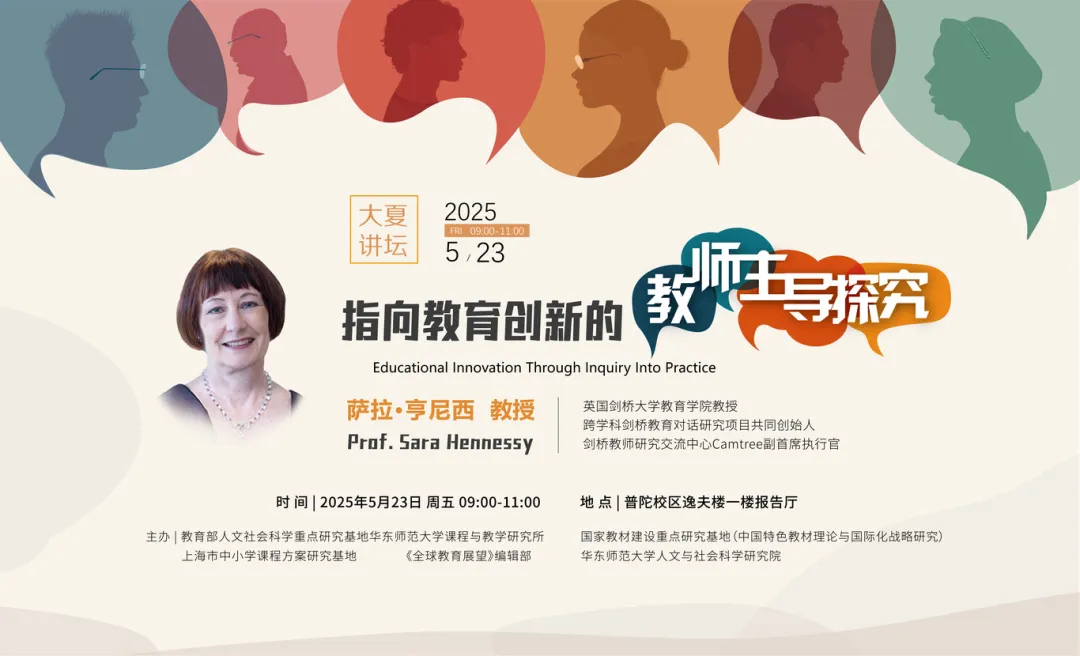
Educational innovation requires both international vision and local practice. On May 23, the Daxia Forum of East China Normal University held the 238th academic feast. Professor Sara Hennessy of Cambridge University in the UK came to China to exchange cutting-edge research results. Through the complete closed loop of "theoretical guidance + practical implementation", she provided a vivid example for the professional development of teachers in the new era.
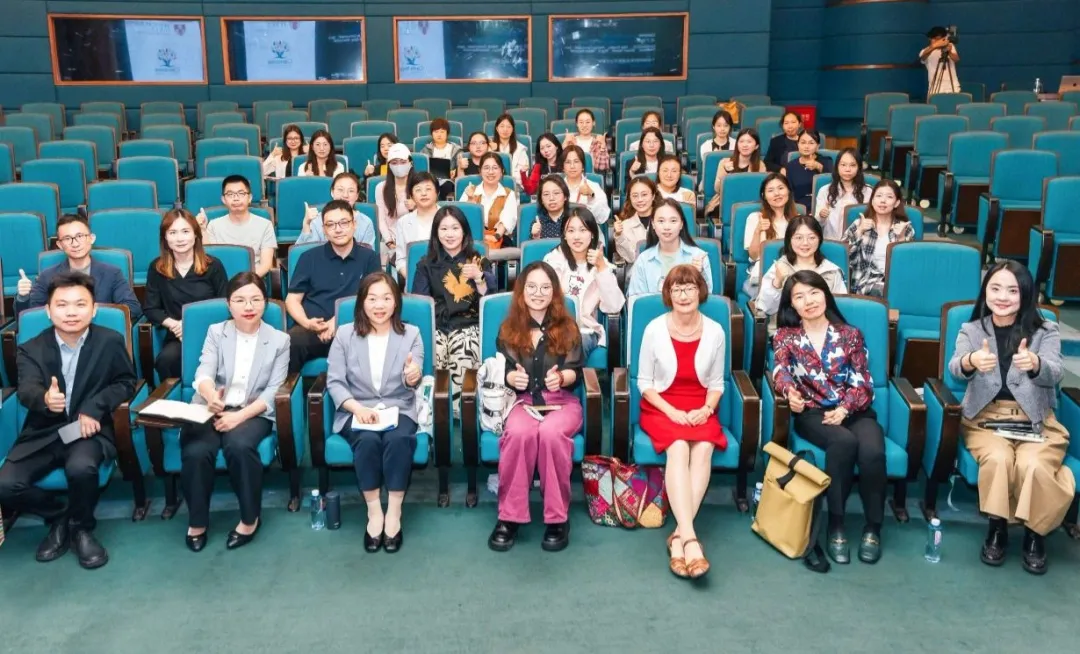
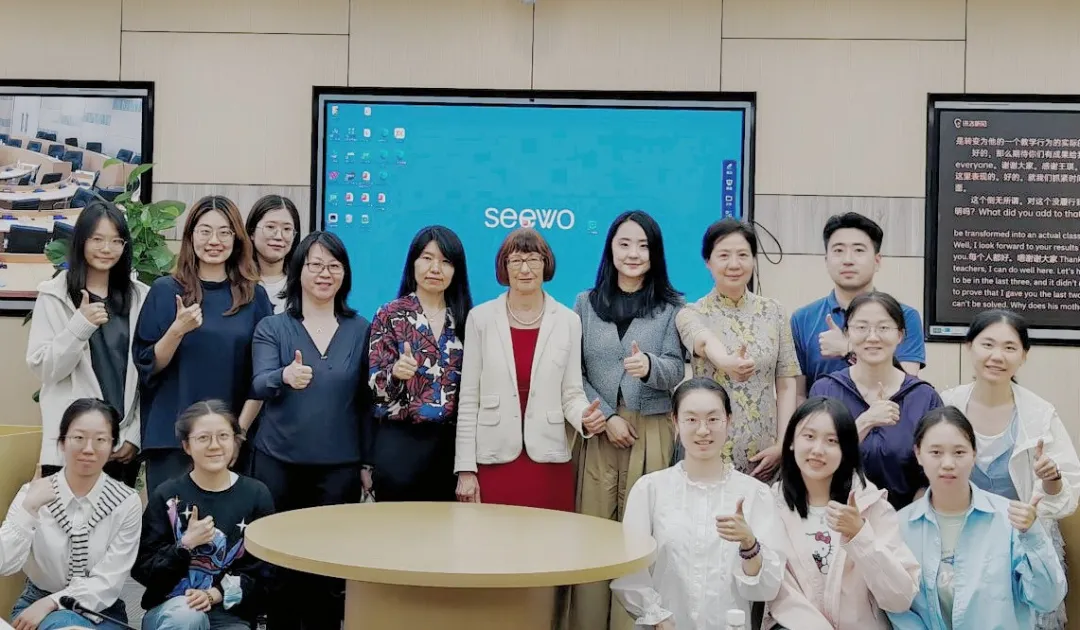
This educational dialogue across the East and the West not only shows the latest trends in international education research, but also highlights the practical significant support of educational theory to teaching practice.
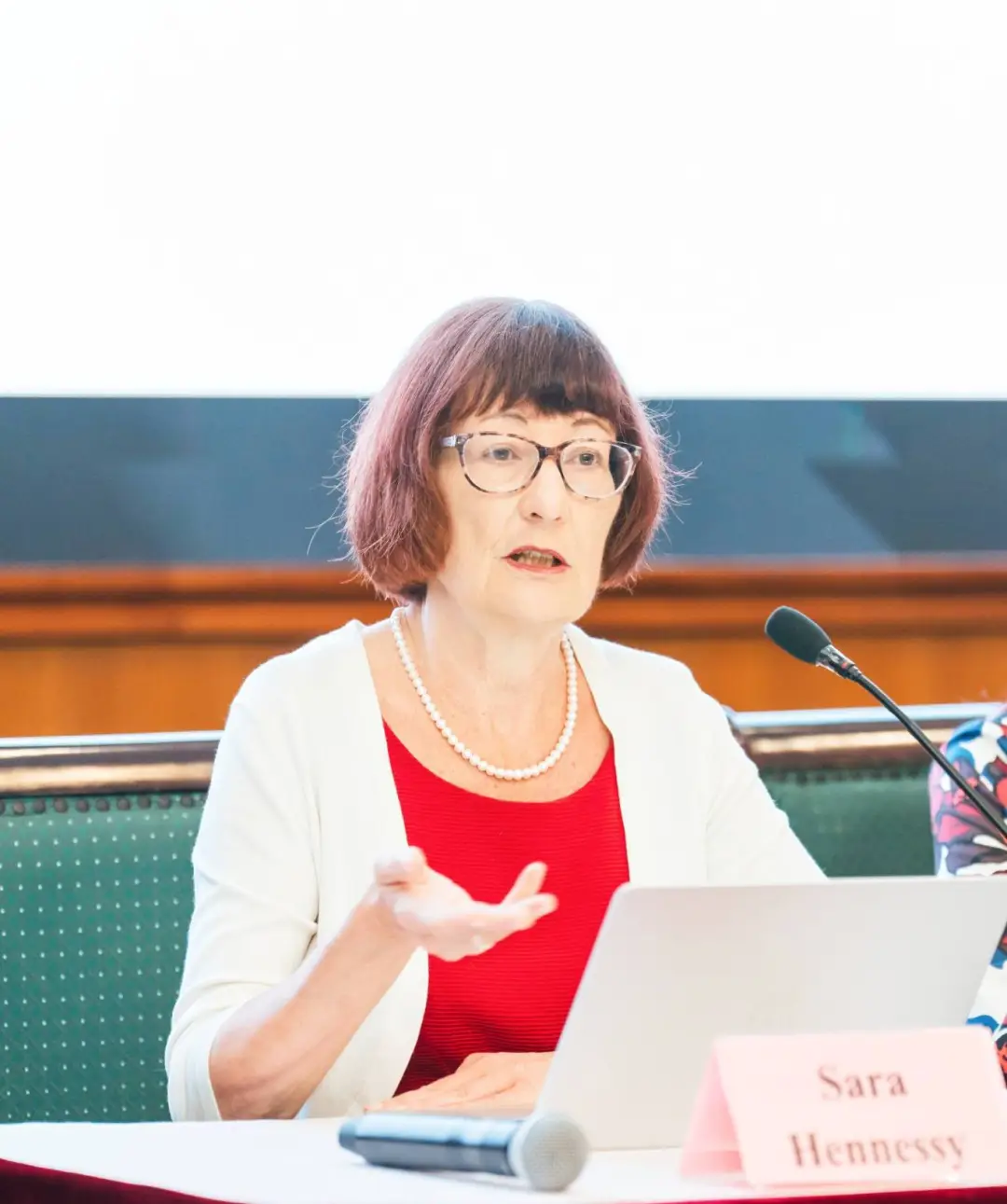
Sarah Hennessy is a professor at the Faculty of Education of the University of Cambridge in the UK. In her nearly four decades of career, she has led dozens of funded research projects, published four monographs, 75 peer-reviewed articles and many other publications towards researchers, practitioners and policymakers.
She is the co-founder of the interdisciplinary Cambridge Educational Dialogue Research Project (CEDiR). Her team has developed pioneering research tools for analyzing dialogues that are helpful for learning, including versions suitable for teachers at all stages of education and technology-mediated dialogues. Professor Hennessy is also the deputy CEO of Camtree, the Cambridge Teacher Research Exchange at Hughes Hall, University of Cambridge. Camtree is a global platform for educators that supports reflective practice, research, and inquiry, aiming to improve teaching in classrooms and educational institutions. Professor Hennessy has been engaged in research on the use of educational technology and related teaching methods, and has been the editor-in-chief of the SSCI source journal British Journal of Educational Technology.
238th Daxia Forum
The 238th Daxia Forum was held as scheduled in the lecture hall of the Shaw Building of East China Normal University on the morning of May 23. This Daxia Forum specially invited Professor Sara Hennessy from the Faculty of Education of the University of Cambridge to share the theme report "Teacher-led Inquiry to Educational Innovation", and Dr. Ji Ying, a postdoctoral fellow at the Department of Education of the University of Cambridge and a researcher at Camtree, a Cambridge teacher research exchange platform, attended. The meeting was hosted by Associate Professor Shi Yuchen, Director Assistant of the Institute of Curriculum and Instruction of East China Normal University, and the report attracted many experts, scholars, and educators to actively participate.
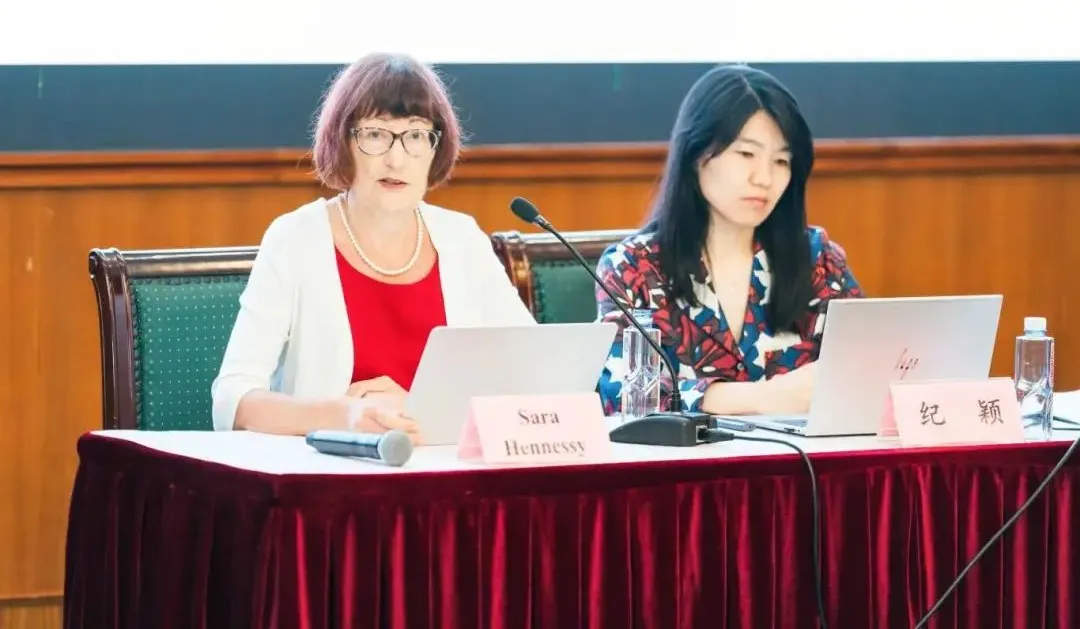
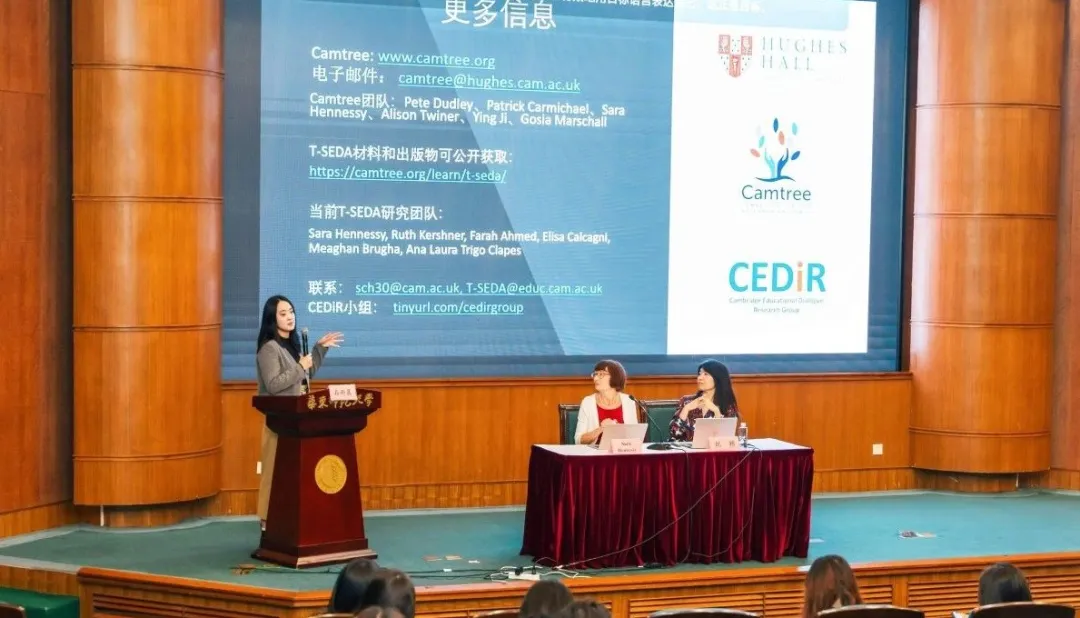
Report Overview
Professor Sara Hennessy's report unfolds in a subtle trilogy: the first chapter explores the intrinsic connection between teachers' spirit of inquiry, subject consciousness and professional growth; the second chapter presents the innovative achievement of the T-SEDA toolkit that empowers teachers' independent research; the final chapter focuses on Camtree, the Teacher Research Exchange Center of the University of Cambridge, and systematically analyzes its unique teacher development support system.
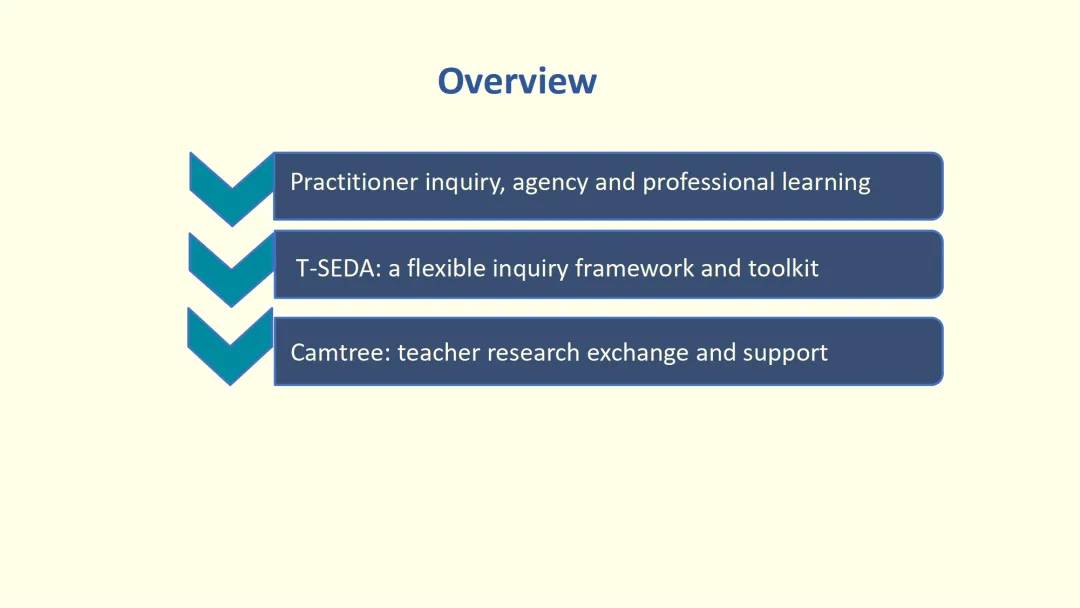
Professor Hennessy started with the limitations of traditional teacher professional development programs, pointed out that the current educational innovation and change model underestimates the initiative of teachers, and proposed an alternative path of "supporting teachers' professional learning and educational innovation with inquiry practice".
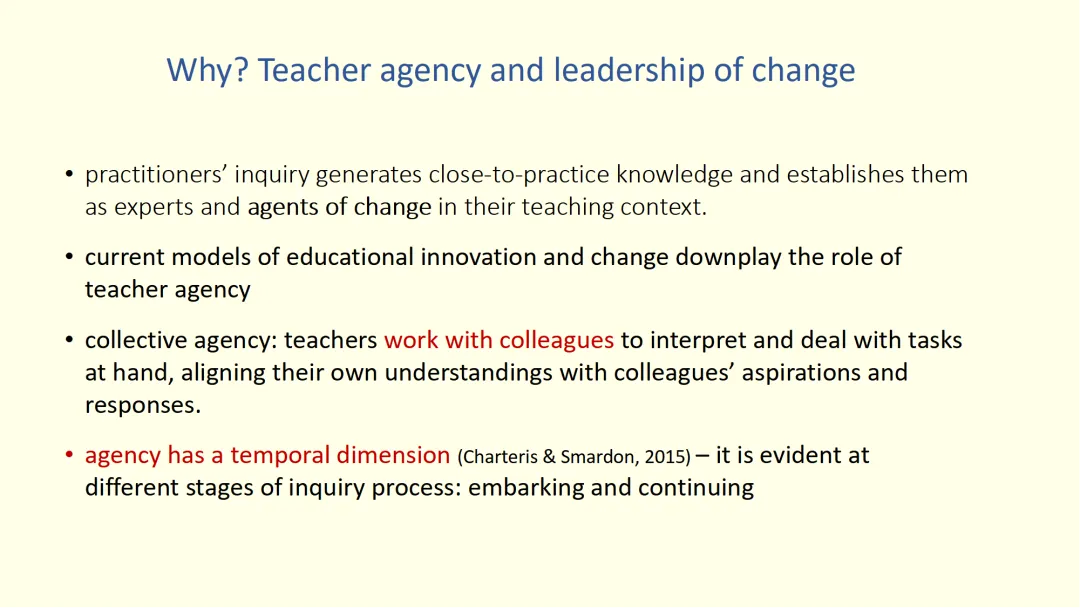
Teacher-led inquiry encourages teachers to give full play to their initiative, explain their professional knowledge in new ways, reflect on their own practical experience, and conduct collaborative inquiry with the support of leaders, so as to achieve continuous teacher professional development and improve students' learning effects. Teacher-led inquiry can better apply academic research results to localized teaching context and also make teachers themselves experts and change promoters.
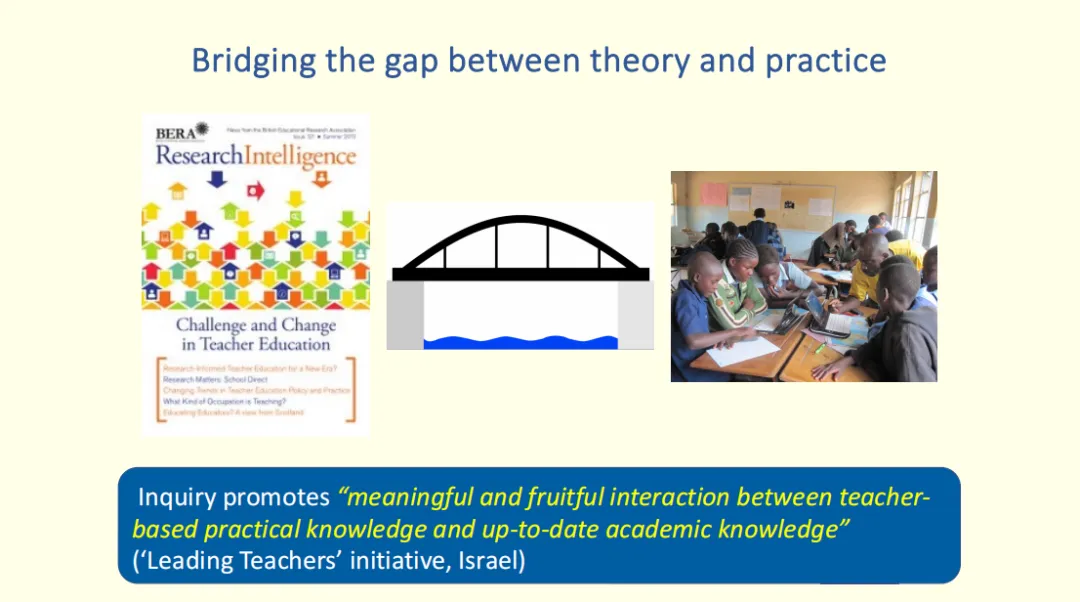
How can we support scalable but locally relevant TPD based in educational settings across diverse contexts? How can professional learning resources and programmes be designed to facilitate independent and self-sustaining adaptation, use and development of research knowledge? Starting from the two major challenges faced by teacher professional development, Professor Hennessy introduced the Toolkit for Systematic Educational Dialogue Analysis (T-SEDA) to assist teachers in conducting practical inquiry.
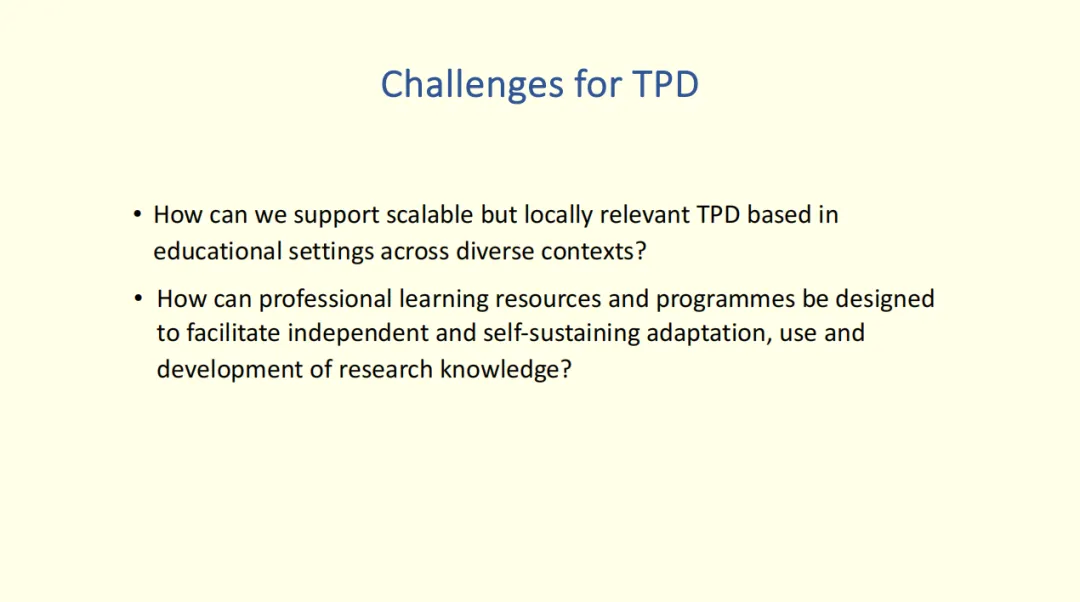
T-SEDA is a flexible, research-informed inquiry toolkit. Based on the core principles of teacher agency, systematic inquiry, professional dialogue and cooperation, the toolkit can help teachers identify and promote high-quality classroom dialogues and study changes through critical reflection, experimentation, trial and improvement activities. Currently, T-SEDA has been translated into multiple languages and is widely used in global educational practices.
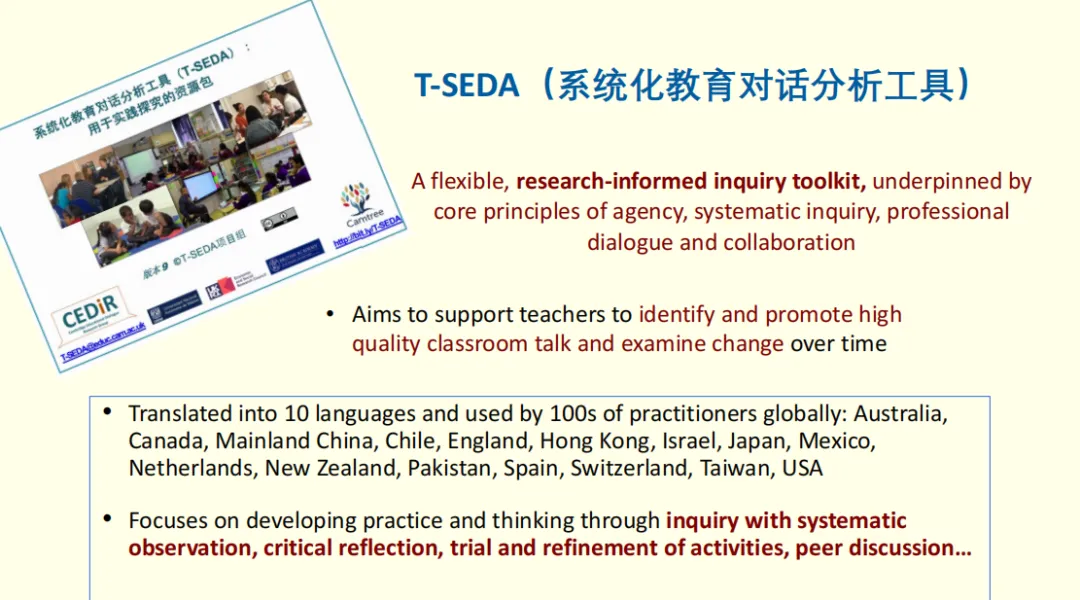
Taking tools such as the reflective inquiry cycle, dialogue coding framework, taking points, and ground rules as examples, Professor Hennessy introduced the use of the T-SEDA toolkit in detail in her report, and gave examples of teachers using the T-SEDA tool to conduct practical inquiry.
So, how can teachers benefit from professional learning communities? Professor Hennessy focused on the Cambridge Teacher Research Exchange (Camtree), a global teacher research exchange platform developed by Hughes Hall, University of Cambridge.
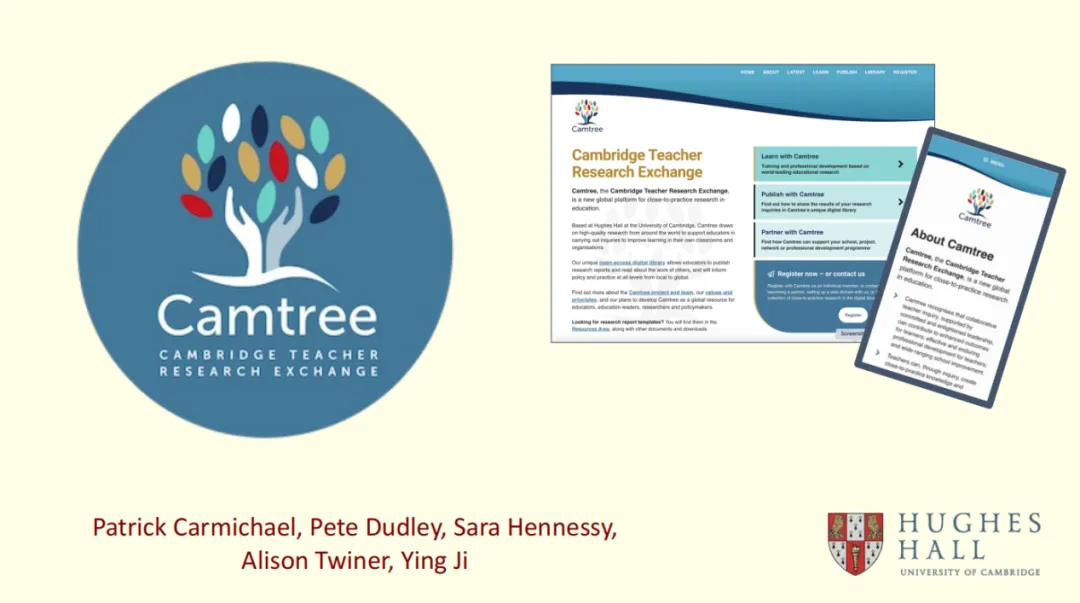
Camtree is committed to promoting knowledge sharing and professional development among teachers, and encouraging teachers to apply research results to actual teaching to promote educational innovation. The digital library of the Camtree platform provides multilingual support and artificial intelligence assistance, in which teachers can create and manage learning communities, share and publish their own research results and practical cases. Currently, Camtree is used in preschool education, primary education, secondary education and higher education. Its users and partners are spread all over the world, jointly promoting knowledge sharing, policy improvement and educational innovation.
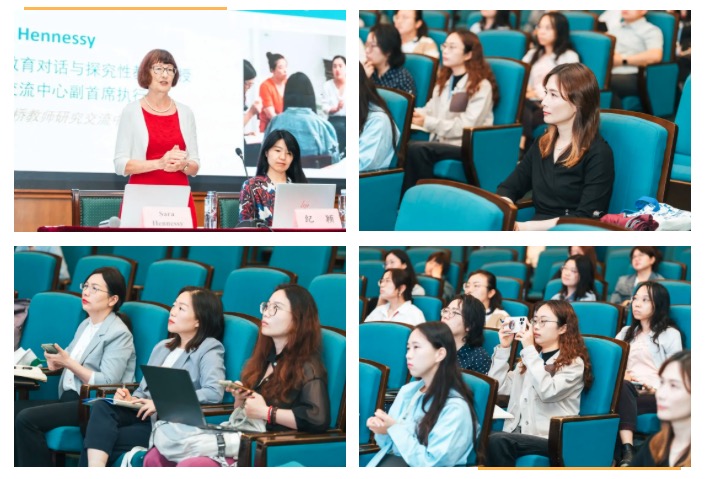
Communication
In this Daxia forum, Professor Hennessy and Dr. Ji Ying had a heated discussion with teachers and students on teacher practice exploration, dialogue coding framework, and the construction of dialogue rules. Professor Hennessy's wonderful sharing and in-depth exchanges have brought us many inspirations in the fields of teacher professional development and teacher practice exploration.
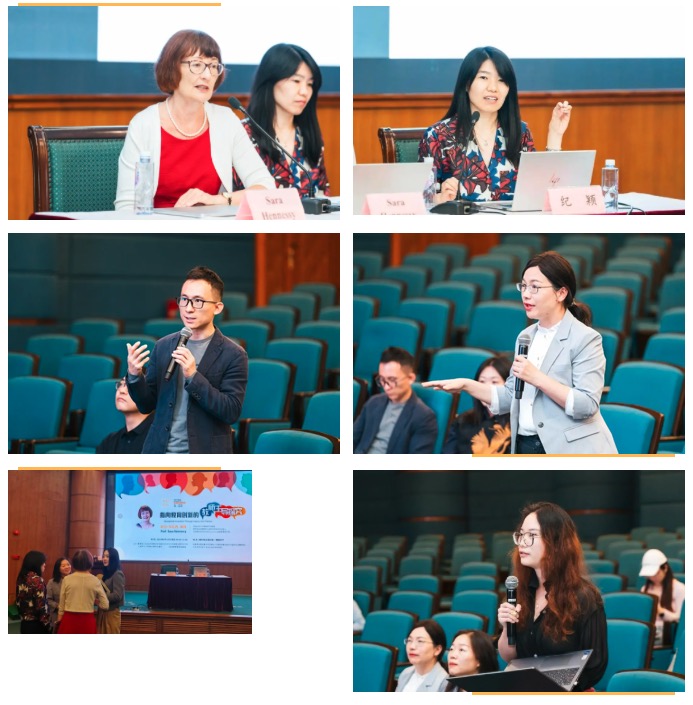
The Daxia Forum ended successfully in a warm and pleasant atmosphere. We look forward to exploring new ideas and methods to support teacher growth with Camtree and more educational colleagues in the future.
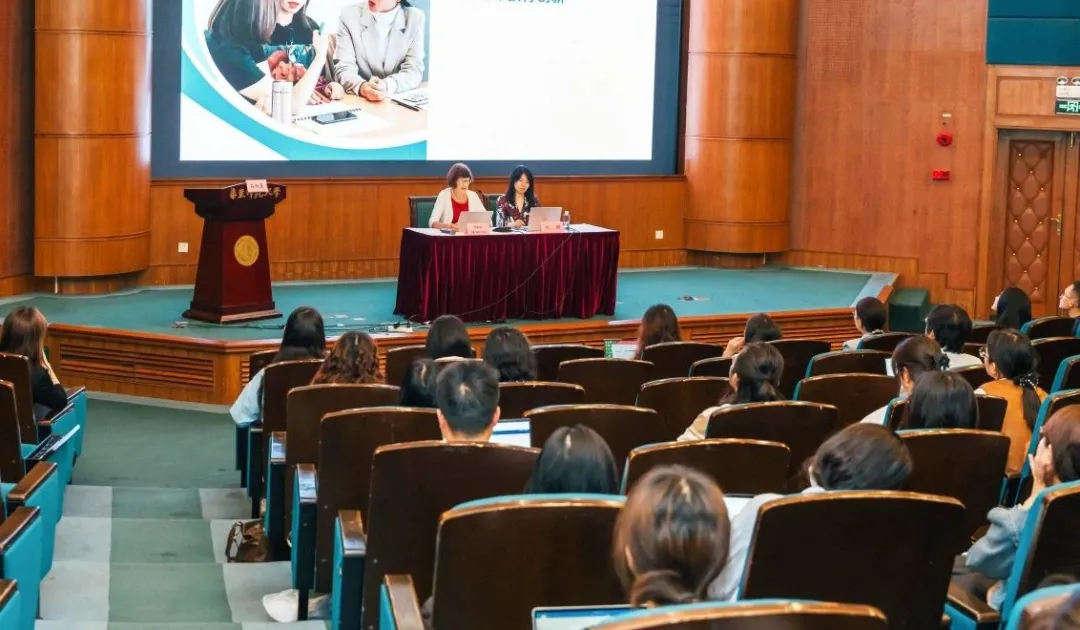
The theoretical discussion in the morning provides an international perspective and academic support for educational innovation, and practice is the touchstone for testing ideas. With cutting-edge research results, under the organization and arrangement of the ICI, Professor Hennessy, Dr. Ji Ying, and Associate Professor Shi Yuchen went to Shanghai No. 3 Girls' Middle School in the afternoon to bring academic thinking into real classroom scenes. Through on-site observation and in-depth discussions, they realized the organic connection between educational theory and teaching practice, and demonstrated the academic pursuit of "research for practical use".
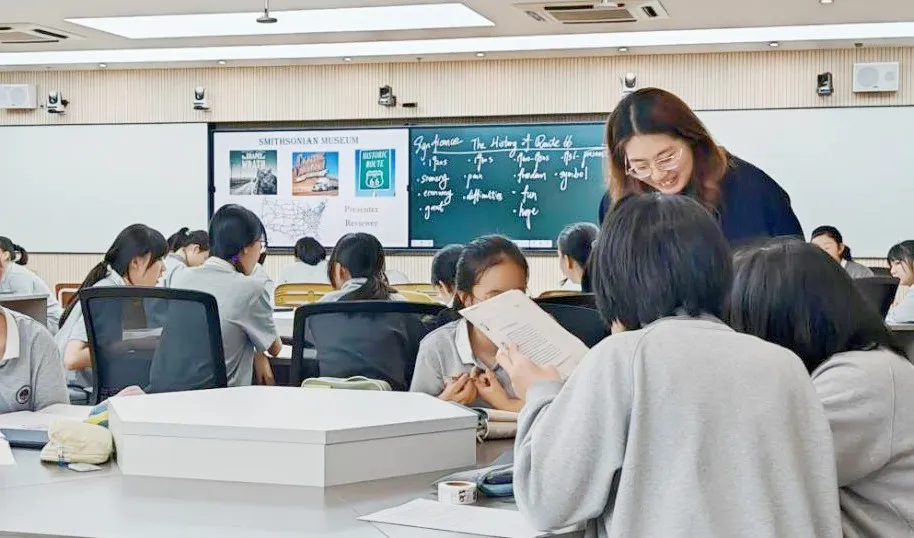
The expert team went deep into the English class of Ms. Wang Qi in the first grade of high school for immersive teaching observation. In the "The History of Route 66" course, the two experts captured the details of teacher-student interaction from the perspective of researchers, focusing on the logic and innovation of teaching design.
At the joint teaching and research meeting after class, Professor Hennessy proposed a specific improvement plan on "enhancing students' classroom discourse power" based on constructivist theory; Dr. Ji Ying cited the latest research results of Cambridge and shared strategies to stimulate student participation from the dimension of social emotional learning. These professional suggestions with both theoretical depth and practical guidance triggered heated discussions and resonance among the teachers present.
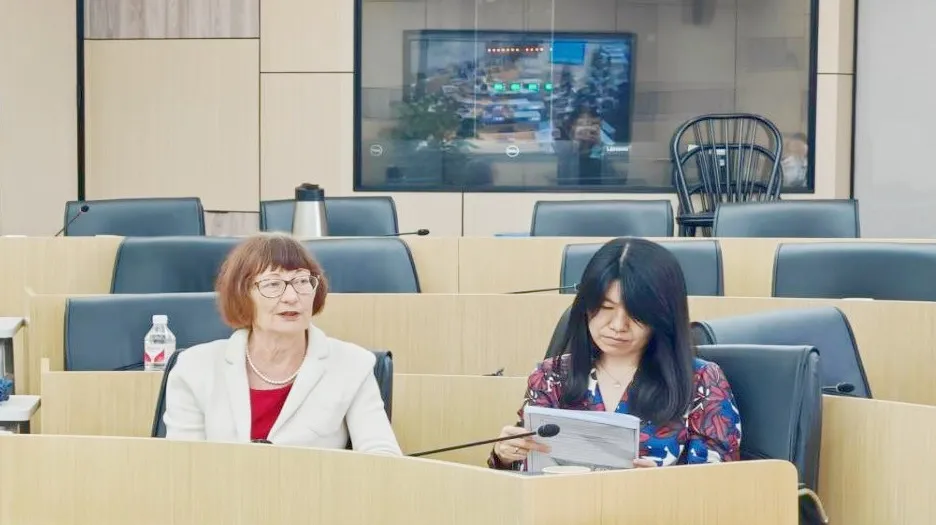
During the discussion, Ms. Wang Qi showed strong professional reflection ability. She combined the expert suggestions and immediately put forward an innovative idea: "Optimize classroom time allocation through pre-learning tasks, and strengthen the organic connection between students' life experience and teaching content." This insightful proposal immediately triggered in-depth discussions among the participants. Chinese and British education experts and in-service teachers launched a cross-cultural professional dialogue around "optimal design of lesson components."
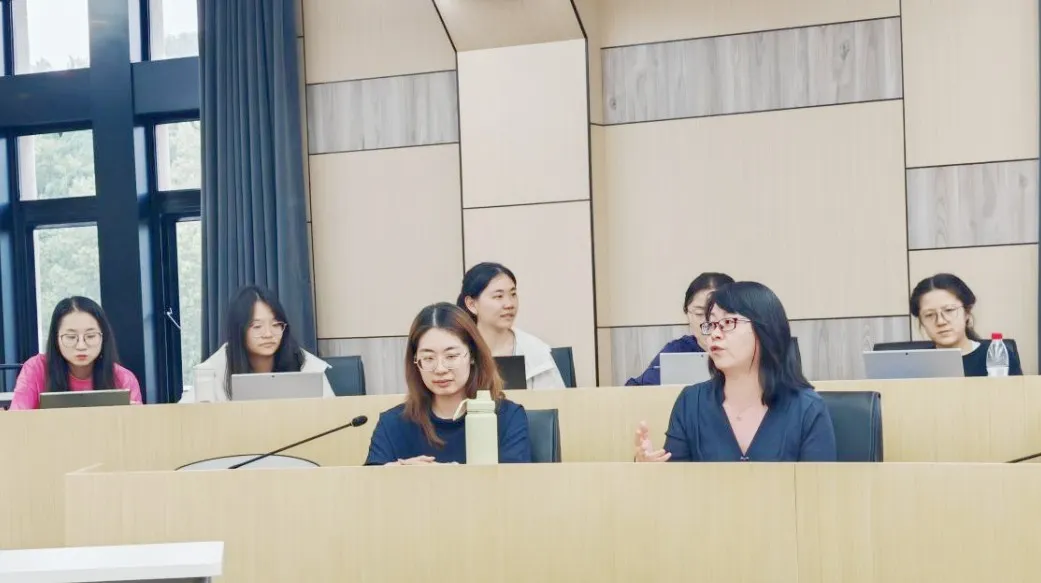
In the two-and-a-half-hour discussion, the participants not only reconstructed the unit teaching framework, but also built a bridge connecting Chinese and British education practices, realizing the deep integration of theoretical wisdom and practical experience.
From the theoretical construction in the special lecture "Teacher-led Inquiry for Educational Innovation" to the real teaching and research collision in the classroom of the Third Girls' High School, this educational dialogue has achieved a deep engagement between academic wisdom and practice. The concept of "teachers as innovation engines" emphasized by the professor is vividly demonstrated in the teaching reconstruction generated instantly by Ms. Wang Qi.
From theoretical enlightenment in the lecture hall to design iteration in teaching and research, Chinese and British educators use the classroom as a laboratory to confirm how the teacher-led inquiry community activates the chain reaction of educational innovation: in the mutual nourishment of academic frontiers and local practices, let every classroom become the source of educational reform.